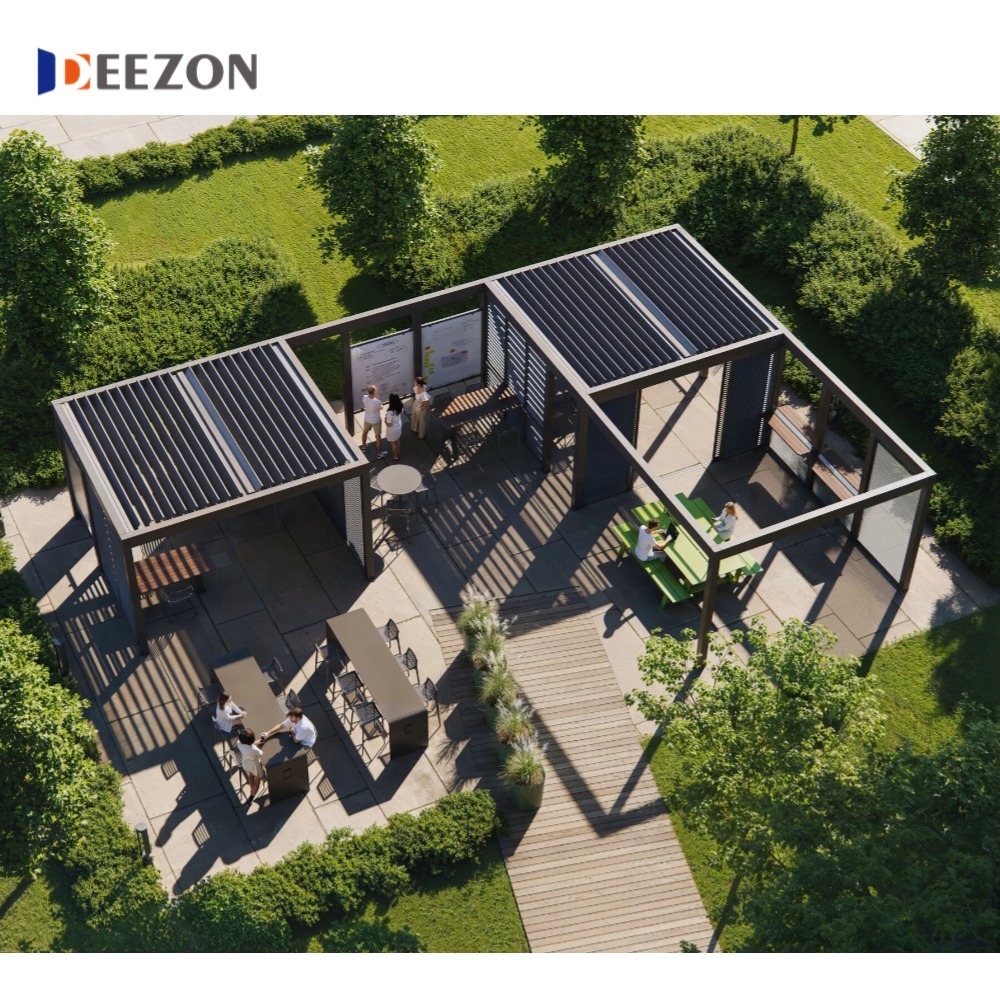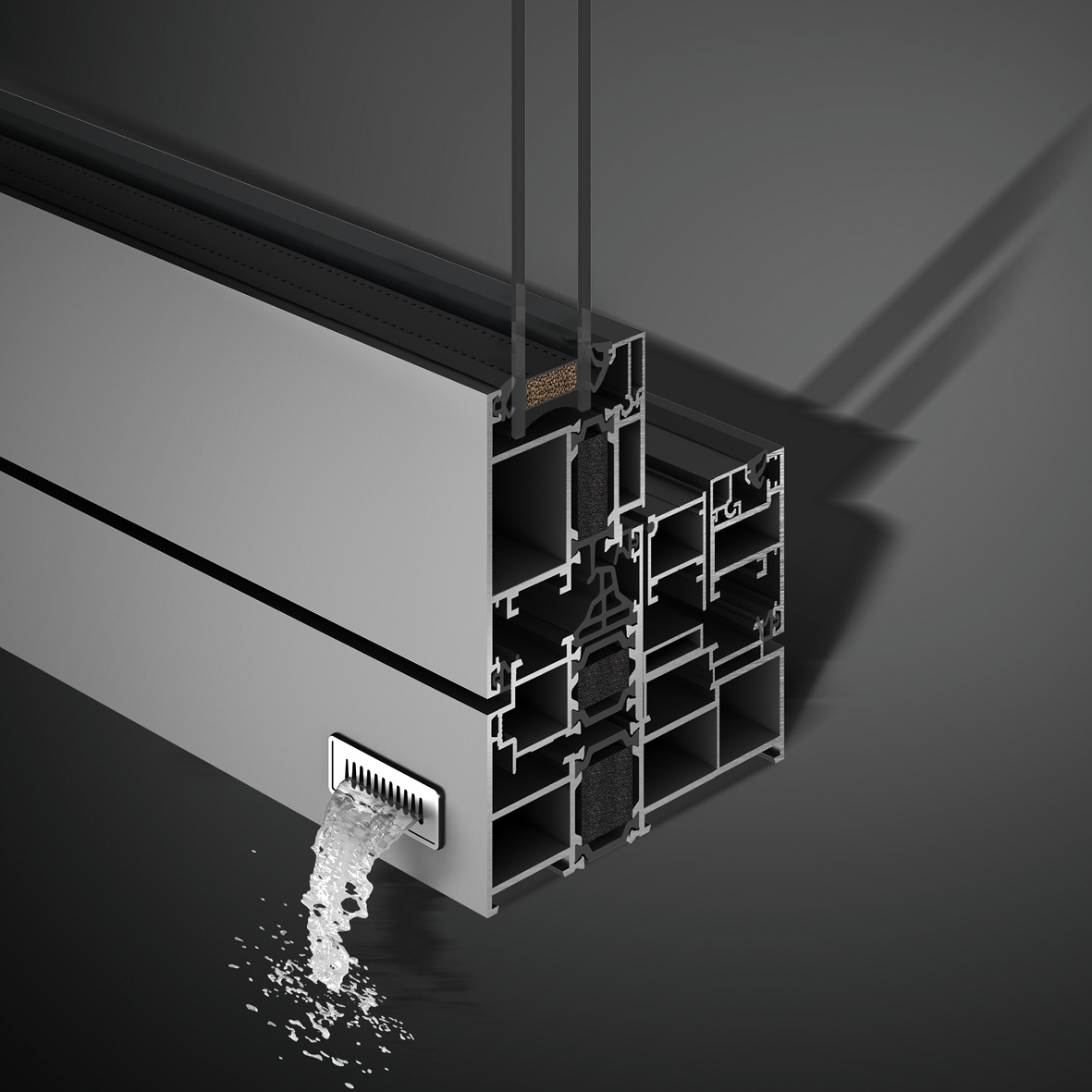Foshan Deezon Windows and Doors Co.,Ltd.
language
Exploring the Benefits of Aluminum Glass Greenhouses for Modern Architecture
Jul 22,2025

Aluminum glass greenhouses have become increasingly popular in the field of architecture and construction, particularly for their ability to blend functionality with aesthetic appeal. These structures are designed to provide optimal growing conditions for plants while simultaneously enhancing the visual dynamics of residential and commercial spaces. Below, we explore the key features and benefits of aluminum glass greenhouses, highlighting their relevance in modern architectural practices.
One of the primary advantages of aluminum glass greenhouses is their durability. Aluminum frames are known for their resistance to rust, corrosion, and weather-related wear, making them a superior choice for long-term use. This characteristic ensures that such greenhouses can withstand various environmental conditions, thereby reducing maintenance costs and increasing longevity.
In addition to their strength, the use of glass as a primary material allows for maximum natural light penetration, which is essential for plant growth. The greenhouse effect created by the glass facilitates temperature regulation, promoting a controlled environment for plants to thrive. By utilizing high-performance glazing, these structures can also improve energy efficiency, reducing reliance on artificial heating and lighting solutions.
Aesthetic versatility is another significant benefit of aluminum glass greenhouses. The sleek lines and modern finish of aluminum frames can complement a variety of architectural styles, making them suitable for both contemporary and traditional designs. Architects and builders can customize these structures to fit specific project requirements, whether they are creating a garden space, a sunroom, or a commercial plant nursery.
From a sustainability perspective, aluminum glass greenhouses contribute positively to environmental objectives. The efficient use of resources, coupled with the potential for rainwater harvesting and energy generation through solar panels, aligns with eco-friendly practices. This aspect is increasingly important as the construction industry moves toward greener building solutions.
Furthermore, these greenhouses can serve multifunctional purposes. Beyond gardening, they can be transformed into leisure spaces, such as lounges or cafes, where individuals can enjoy the serenity of nature year-round. This adaptability enhances their appeal to builders and homeowners alike, as they can be integrated into various lifestyle applications.
In conclusion, aluminum glass greenhouses present a compelling option for professionals in the building and decorative materials industry. Their durability, energy efficiency, aesthetic appeal, and multifunctionality make them an ideal choice for modern architectural projects. As the demand for innovative and sustainable construction solutions rises, aluminum glass greenhouses are poised to play a pivotal role in shaping the future of architectural design.
One of the primary advantages of aluminum glass greenhouses is their durability. Aluminum frames are known for their resistance to rust, corrosion, and weather-related wear, making them a superior choice for long-term use. This characteristic ensures that such greenhouses can withstand various environmental conditions, thereby reducing maintenance costs and increasing longevity.
In addition to their strength, the use of glass as a primary material allows for maximum natural light penetration, which is essential for plant growth. The greenhouse effect created by the glass facilitates temperature regulation, promoting a controlled environment for plants to thrive. By utilizing high-performance glazing, these structures can also improve energy efficiency, reducing reliance on artificial heating and lighting solutions.
Aesthetic versatility is another significant benefit of aluminum glass greenhouses. The sleek lines and modern finish of aluminum frames can complement a variety of architectural styles, making them suitable for both contemporary and traditional designs. Architects and builders can customize these structures to fit specific project requirements, whether they are creating a garden space, a sunroom, or a commercial plant nursery.
From a sustainability perspective, aluminum glass greenhouses contribute positively to environmental objectives. The efficient use of resources, coupled with the potential for rainwater harvesting and energy generation through solar panels, aligns with eco-friendly practices. This aspect is increasingly important as the construction industry moves toward greener building solutions.
Furthermore, these greenhouses can serve multifunctional purposes. Beyond gardening, they can be transformed into leisure spaces, such as lounges or cafes, where individuals can enjoy the serenity of nature year-round. This adaptability enhances their appeal to builders and homeowners alike, as they can be integrated into various lifestyle applications.
In conclusion, aluminum glass greenhouses present a compelling option for professionals in the building and decorative materials industry. Their durability, energy efficiency, aesthetic appeal, and multifunctionality make them an ideal choice for modern architectural projects. As the demand for innovative and sustainable construction solutions rises, aluminum glass greenhouses are poised to play a pivotal role in shaping the future of architectural design.







